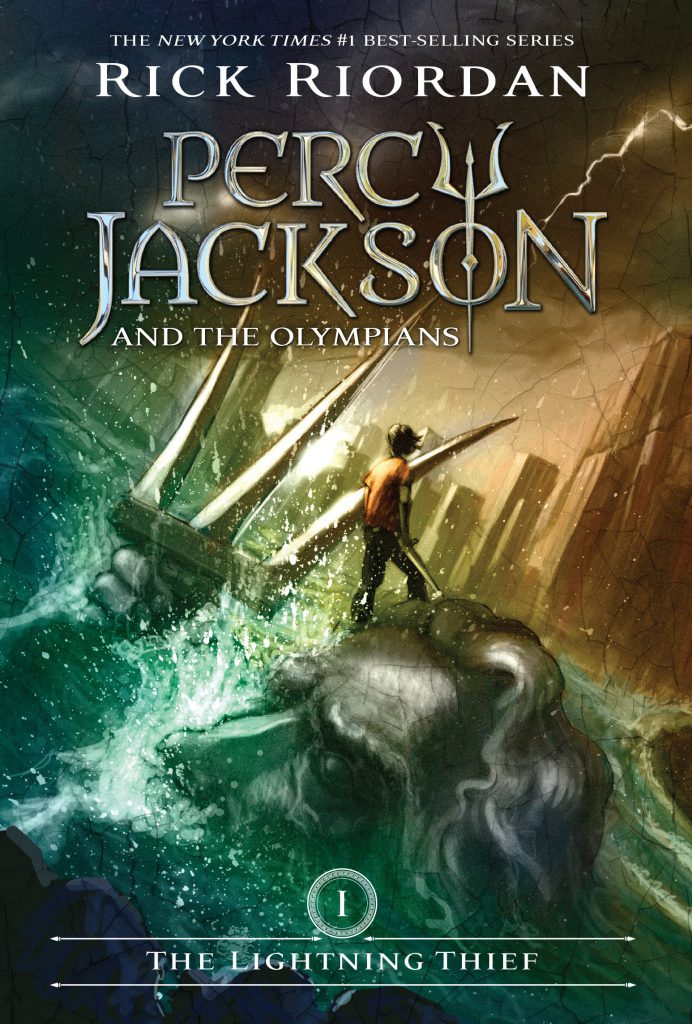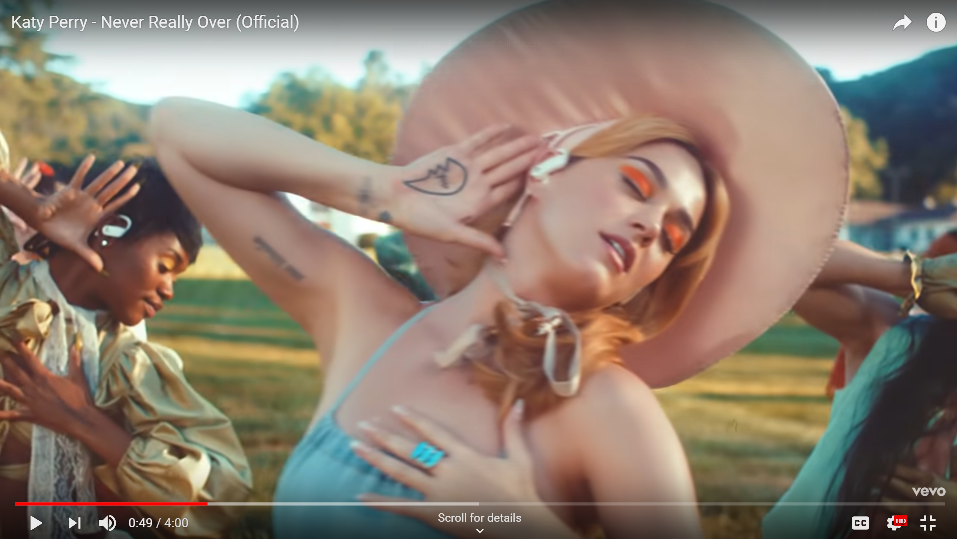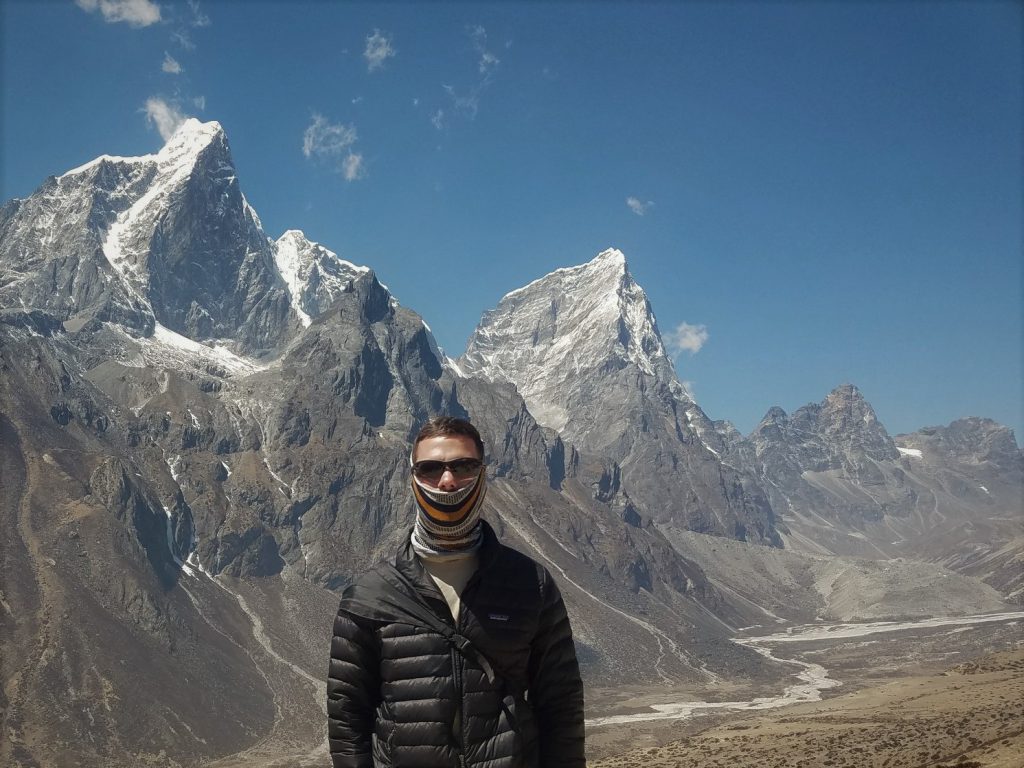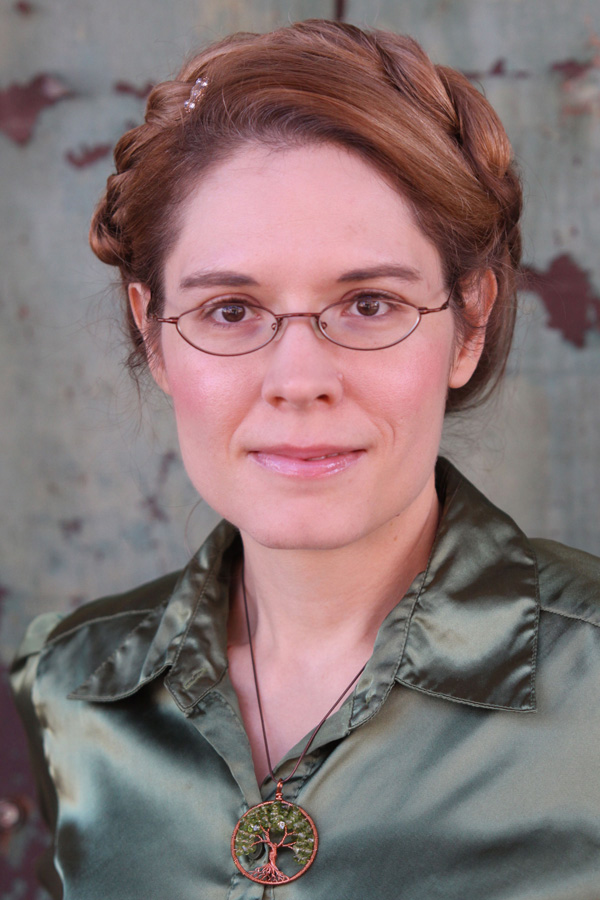It is a long way down to the sea. A long way down, and treacherous. But I must make this journey today from my uncle’s castle, carrying his bones. I must make this journey, both for my uncle’s bargain, and for my own.
The way starts in the morning, when the frost’s sheen at the top of the mountain wants to blind me. This is the first obstacle of the day, to avoid the harsh winter sun as it shines against the rocks and the meagre grasses that dare peek out in my uncle’s deadlands. A place where I am one of the last living things.
One of the last living things still holding on.
I cradle his bones in my right arm, as my left one is the one that will need to hold the rope. The rope, this high on the mountain pass, which is now slick with frost and will become wet under my warm, living hand. The frost will fall off the rope as the seasons change down the mountain, as it will become warmer later.
The Mountain of Three Seasons carries its intent in its name.
I carry no weapon with me. I wear no armor. This is important, both for my task and for my uncle’s promise. I know I will find weapons later, down by the sea, in the cave that I seek. I know that armor has collected there, and gold, and bones.
And a dragon.
Or what is left of one.
The mountain path is narrow and sheer. The winds whip and whisper my death down below. They promise me things. They promise me, “Itta, no more loneliness.” “Itta, no more pain.” But I know these are lies. I know how my uncle lived.
I know that his pain did not end upon his first death.
So the wind’s whispering and promises go ignored as I travel down, down, down the mountain pass. I grip tight to the rope, grip tight to my uncle’s bones; my chill visible, my breath visible. Then less visible. Now invisible.
As I am now in spring.
*
It was spring when I came to live with my uncle, some ten years ago. I came from the lowlands. From the burned lands. From lands which will now be forever warm. Because dragon fire upturns not only treasure, but family.
My uncle welcomed me into his castle with a hand so cold, I thought I would never be warm again. His touch was like anticipation—it made my heart flutter, made my eyes grow wide with wonder. My eyes that took in his tapestries on every wall. Tapestries of unicorns and of knights and of dragons that hung so thick they made my boots whisper on the stone.
But I did not whisper. I turned to him, precocious as I was, a girl of seven. I turned to him and I asked, “Uncle, why is your hand like ice?”
“I am a ghost, my dear Itta,” he said. “I have been a ghost for many years.”
I was too young to be shocked by such things then. Too small to think the answer odd.
“How did you die?” I asked.
“Magic,” he said. “And I am kept here by magic, magic that I will teach you, and magic that you will help me do. Would you like that, my dear girl?”
Again, too young to disagree, I nodded. “I would, Uncle. Yes please.”
A young girl wants only to please her elders, after all.
What he taught me was how to read from books whose pages smelled sweet and were fragile in my fingers. Books that held stories of dragons, and the fighting of them. Then stories of old mages, and how they fought dragons, and then stories of powerful maidens and their own battles with the beasts.
Some three years later, I brought eggs to a boil for my supper.
“Would you like to kill a dragon, my dear Itta?” my uncle asked.
“Am I going to learn to kill a dragon, Uncle?” I asked back.
“Yes, my dear,” he said. “That is exactly the reason you are here.”
*
The reason I am here is to travel down the mountain, as the rope becomes wet, simply wet beneath my fingers, now that winter has gone. The reason I am here is to deliver my uncle’s bones to that cave by the sea; the cave holding such treasure, but I do not want this treasure. I want the dragon who keeps it.
I travel to this cave as the sheer pass tries to show me other promises. Crocuses here. Forget-me-nots there. Three daisies clinging to a rock, what a pretty thing they would be as a crown on someone’s head.
But this thought is a trap.
I seek no crown.
The daisies whisper to me. “Itta, Itta,” the daisies say. “Come, come and take me. Place the bones here. Surely they are too heavy a burden. Surely they are too heavy for you.”
This is another trick of the mountain pass. To unbalance me, to make me forget my promise to my uncle, to forget my task. Forget all it is I am meant to do. Without this task, I have no future—only my past. Only what I was.
So I say nothing to the daisies; I ignore their request. The path stretches longer and thinner out in front of me, and I must go. I hold fast to the rope as I look ahead. Look ahead into summer, where I will wander into tall grasses. Where I will follow the grasses as they lead to the sea, clutching my uncle’s bones tight to my chest. Hold them with my sword arm, my fighting arm, now holding my uncle close.
As I have every day since his death.
Every day since I refused to bury him.
I walk into summer, and pass through the tall grasses whose seeds tickle my nose, tickle my skin. My body writhes and twitches, but I do not drop what I carry. I cannot. I carry too precious a thing. I understand that.
I understand that all too well.
“Itta,” the grasses say, “lay down here with us. Stay a while. Look up at the bright beautiful sun. Let it warm you.”
But I do not. I will have a lifetime to look at the sun. I will have a lifetime to remember the feel of warmth upon me.
*
The days were warm when I learned the name of the dragon I was meant to kill. She was called Nomathstep and she kept a cave by the sea. A cave filled with the bones of wizards and knights, with their swords and their staves, with gold stolen from the villages she burned. Soon, after that meal of eggs and that talk of dragons, my reading went from stories of maidens killing dragons, to books on the anatomy of dragons, mages’ treatises on what sort of magic to use on a dragon, and, finally, what sort of sword a girl like me should wield.
For seven years, I knew I was to learn to kill a dragon. So every day, for seven years, I took a sword in my hand to practice what I’d read. I practiced against air. I practiced against tapestries of dragons. I practiced with visions of the stories of Nomathstep. Stories of her fire, of her fury, of her golden eyes. All this time, I caught my uncle watching me from his spellrooms. Rooms I was not permitted to enter. Rooms that felt like anticipation; simply being near them made my heart flutter, made my breath catch.
In all that time, in all that training. I never learned a single spell. Still, I kept my uncle’s castle clean, kept myself fed with eggs and chicken and wild onions. I never saw another person my age, never saw another person at all. But the stories, they continued to arrive. Through my uncle, through the books left in my own rooms.
And each night, like every night, my uncle asked me, “Are you ready yet to kill a dragon?”
And each night, after training, after chores, I answered, “Perhaps tomorrow.”
And then my uncle said, “Then tomorrow, I will teach you magic.”
But he never did.
Because.
Because my uncle was in love with Nomathstep; he did not want her to die.
I knew this in the way my uncle spoke of the dragon. In the way he spoke of her beautiful red scales, of her fathomless golden eyes. He often muttered about her in his spellrooms late at night when he thought I was not listening from my own room below. The castle crags were deep and no longer good for keeping secrets. My uncle muttered about her voice, how it was like to singing. He muttered about the feel of her scales under his hand, smooth, and silky, and warm.
I knew by all these utterances that he was in love with her.
I knew then what I had to do.
One day. Because love is greater than revenge.
*
Today I am walking to a cave by the sea. I have walked down the Mountain of Three Seasons, and now I must cross the sands under the hot, hot sun. The heat scorches my tongue and my throat. My hair, once drawn up away from my face, has fallen limp against my cheeks. Sweat trickles down my arms, down my back, pools in my boots. But I have not felt the heat I seek yet. I know this.
I know the real heat is yet to come.
I clutch my uncle’s bones close, my sword arm easily bearing the weight. But my sword arm aches for something else. For that sense of anticipation, for the chill of my uncle’s ghost when he stood near me. That ache will not leave, wherever I go. Whether in my uncle’s deadlands, or wherever my future takes me.
But this I know, with my promise to him and the one I make today, my uncle’s days of heartbreak are over. His longing. His curse. His sense of betrayal. The curse remained only until final death. And now that day has passed. And now his pain has ended.
The sands climb up to meet me, dunes rising higher and higher on the way to Nomathstep’s cave. This is what one does for love, so the stories say. They traverse the impossible, they ignore the lies and promises of others, walking toward the one they know is true. The one they know is their heart. Even when that heart is dying.
Even when that heart was pierced long ago.
My legs tremble like the tall grasses of the mountain’s summer. My lips shake like the winds of the mountain’s winter. But I carry on, on toward Nomathstep’s cave for the promise, the promise I made to myself, on the day I found my uncle gone. The cave mouth beckoning closer, ever closer to Nomathstep’s home.
*
The cave was where Nomathstep killed my uncle after an accord. The two of them had reached an impasse: that neither of them could continue to go on dragoning and wizarding as they had been, without further harm to the general nature of dragons or wizards. At the time, both of them had beating hearts, both of them spoke with heated words.
Nomathstep asked my uncle, “Is it in your nature to simply kill a thing for being what it is?”
And my uncle asked her back, “Is it in your nature to bargain?”
They spent two weeks in Nomathstep’s cave, talking, discussing, sharing food. They spent two weeks among the bones of those that meant to slay her, clad in their armor and robes, swords cast aside, gold and jewels piled high below them. My uncle remained, alive… for a time.
In the meantime, the villages went unlooted and unburnt. In the meantime, my uncle’s work went undone and untended. However, the two of them reached a different accord. They grew closer, far closer. So close that my uncle wrapped himself underneath Nomathstep’s great wing, and she held him gently in the crook of her claws.
They stayed like this for days, for many days, until my uncle finally said, “I will have to kill you, you understand.”
“And I, you,” Nomathstep said back. “And then will you leave me alone?”
“Of course,” my uncle said. “But I will kill you first.”
But as he tried to stand, as he tried to gather his staff, Nomathstep was faster, closer.
She went first.
She cursed my uncle to a death of loneliness on top of the Mountain of Three Seasons. And then, as the story goes, she pierced his heart with a burning claw, the same one that had held him close. The same one that had cradled him so gently. He died then and there, forever and forever banished to the castle on top of the mountain. To a death of loneliness —for many, many years.
Until I arrived.
The stories say that Nomathstep herself died of a broken heart some months later. That she’d refused to leave from her cave, refused to eat or to drink. Refused to pillage or to burn a single thing.
She went against her dragon’s nature.
And a dragon going against her nature dies.
*
Nomathstep is still dead when I arrive at her cave and she stirs. She opens one dead golden eye, no longer brilliant, no longer shining. Her red scales are shedding, coated in a film of salt, claws dulled and pitted, heart no longer able to warm the cave. She is blinking at the sunlight off the sea as I stand against it. And when she sees me, she rises to her full, terrifying height.
She fills the mouth of the cave, her yellowed, broken teeth baring down at me. Her dead eyes narrowed. A bellows of breath upon my face.
And she says, “Who dares disturb my last dying days?”
Oh, and I do tremble. I tremble as I hold my uncle’s bones in front of me. I do tremble in my lack of armor, with my lack of a sword.
“I am Itta,” I say. “Of the Mountain of Three Seasons. I bring you the bones of the wizard who lived there, who died there.”
Nomathstep takes a step back, her chest rattling with the effort of her undeath. She lowers her snout to me, sniffing me. My heart is so afraid, it tries to escape through my fingers, my throat, my stomach. The heartbeat is so strong, it rattles me, shakes me.
“You smell like him,” she says. “Like anticipation.”
Now her voice is like singing, melodious and mournful, as she lays down upon her pile of treasure. She lifts a wing, her lips cracking into a smile. She beckons me with to her a claw, her dead golden eyes kinder now, gentler now.
“Come, Itta of the Mountain,” Nomathstep says. “Bring my love to me and rest a while, so that we may remember him.”
The cave smells like dust and memory, like hot metal and decay. I settle down onto pile of old robes as she holds me in the crook of her claw, as she folds a flaking wing over me. I lean into the cooling embers of her heart. I know now that Nomathstep is truly dying, I know it by the rattle of her sigh as she holds my uncle’s bones between us.
*
My uncle’s bones are two of his femurs, six fingers, and what remains of his skull. I found them myself, found them one morning when I arrived in the kitchen to make tea. I found the bones resting on the table, at the place he always sat waiting for me. Waiting to ask if I was ready yet today to kill a dragon, and I would answer every day: perhaps tomorrow.
Every night, I would hear his heartbreak from his spellrooms.
My uncle was truly dead; ghosts born of heartbreak only live so long.
This I have learned, in all my reading, in all the books that smelled of sweet or leather. In all the books that felt like velvet or Nomathstep’s scales in my hands. But what I did not learn, in all my books, was how to grieve for a ghost. Was how to take what remained of my uncle and cry for him, to do what he would have wanted.
To do what I would have wanted.
So I took the skull and the femurs and the six fingers. I wrapped them in a small dragon tapestry. I tied them neatly with twine. I refused to bury my uncle. I could not. As lonely as my uncle’s deadlands had always been, I was not ready to be alone.
My uncle had spoken often of the path down the Mountain of Three Seasons. The winds that whispered death, the tricks the flowers played, the promises of the grasses. And finally, the death of the sun. He said he tried to follow the path several times, but he could not make the journey himself.
I spent fourteen days in my uncle’s deadlands, carrying his bones. Fourteen days of loneliness, fourteen days of chicken and eggs and wild onions. All these days with no conversation, with my heart pierced over and over in my chest. All these days, I knew I had to walk the path myself. That I had to take my uncle’s bones to the dragon that he loved. To Nomathstep.
I had to end the curse.
This was my promise.
I had to end the curse and begin my own life. To save Nomathstep from her own heartbreak, to return the bones of the one she loved. I must save myself from the same, from heartbreak. I must cease cleaning an empty castle, one no longer haunted. Cease haunting the castle myself with my own wails and moans. A new life for me would not begin until I left my uncle’s deadlands; it would not begin until I put his bones to rest.
Until I saved another from his fate.
Saved both of us.
*
Both of us spend the afternoon watching the sun it passed into evening, then into night. Once darkness falls, Nomathstep stirs. Her wing cracks and shakes as it pulls away from me; her heart no colder than it was some hours ago. When she speaks, her voice is that same mournful song, but her breath is no longer that bellows. It is a kind heat, a summer wind.
“You are a good girl, Itta,” Nomathstep says. “You are a very good girl.”
“I know,” I say.
“You would make a terrible wizard.”
“I know this, too,” I say.
“But you will make a dragon very happy one day,” she says.
“Maybe,” I say.
“You will.” Nomathstep smiles then. She stands and reaches out with one of her dull and pitted claws. “I will take what is mine: the man I love. You will take what is yours: this cave.”
I offer her the tapestry, the tapestry containing what remains of my uncle. She takes it and holds it in her claws with the kind of gentleness as I have only imagined in books, in stories. The very sight of it makes my heart sting with tears.
“You will make a dragon very happy one day,” she says. “But only the right one.”
And then Nomathstep, love of my uncle’s life, terror of all the land, leaves me in this, my cave. And then she flies out, out over the dark, dark sea.
*
It is a difficult way to my cave by the sea. A difficult way, and treacherous. I have slain many dragons who have tried to claim what is mine, many dragons who tried to take, rather than bargain. But one day, the right one will find me. This was Nomathstep’s promise. One will find me, and we will share her legacy, and all that she left behind.
© 2020 by Jordan Kurella
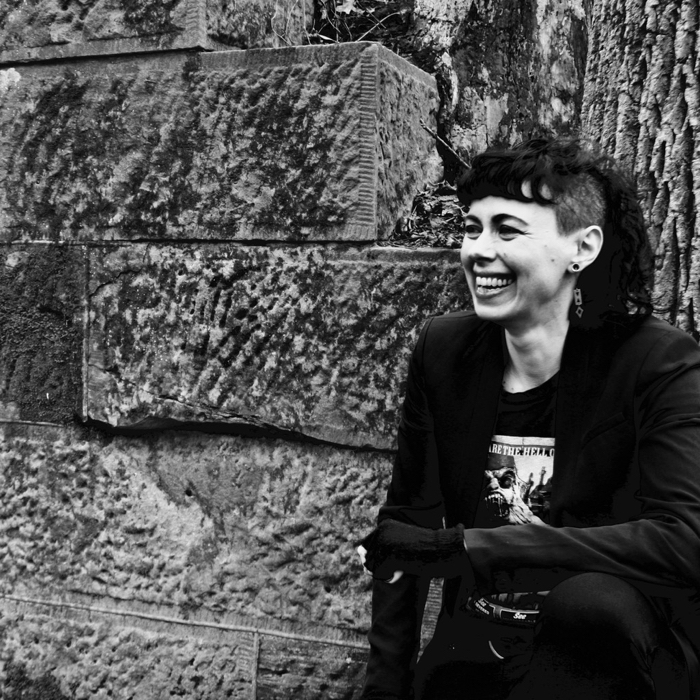
Jordan Kurella is a queer and disabled author who has lived all over the world (including Moscow and Manhattan). In their past lives, they were a barista, radio DJ, and social worker. Their stories have been featured in Apex, Beneath Ceaseless Skies, and Strange Horizons Magazines. You can find them on Twitter @jskurella.
If you enjoyed the story you might also want to visit our Support Page, or read the other story offerings.

